Mastering Stability: The Ultimate Guide to Preventing Random Disconnections of External Hard Drives
To Maintain Digital Life Integrity:
The issue where an external hard drive disconnects randomly is a widespread concern. This unpredictable behavior can interrupt data transfers. It often happens during crucial backups or while accessing stored content. Unexpected disconnections disrupt workflows, risking data loss. These incidents can damage files, affecting your digital integrity. Understanding why your external hard drive disconnects is essential for data reliability. It’s crucial to address this to maintain digital life integrity.
The Impact of External Hard Drive Disconnects Randomly:
Random disconnection of external hard drives disrupts work, causing file corruption and productivity losses. Specifically, video editors and graphic designers face significant setbacks. Additionally, photographers can lose hours of work and miss critical deadlines. For casual users, this means losing precious photos and documents. Consequently, the impact ranges from professional delays to personal data loss.
Therefore, understanding why an external hard drive disconnects randomly is crucial. Identifying these causes can prevent future disruptions.
Identifying Common Culprits
Several factors contribute to when an external hard drive disconnects randomly. Pinpointing these issues allows for targeted solutions. Users can thus minimize future disconnection risks. Identifying the root causes is the first step towards stability. Targeted actions then ensure a more reliable connection.
USB Port Malfunctions
One common cause for external hard drive disconnects randomly is USB port issues. This may stem from physical damage. Or, dust accumulation can interfere. Additionally, insufficient power supply is a frequent culprit. Especially, ports lacking adequate power for the drive pose problems. Addressing these issues can enhance connection stability.
Faulty or Incompatible Cables
The use of faulty cables often causes an external hard drive to disconnect randomly. A damaged cable can compromise stability. Additionally, excessively long cables may reduce signal strength. Furthermore, using cables not meeting the drive’s required standard introduces instability. Replacing such cables with appropriate, high-quality ones can prevent random disconnections. Ensuring cable integrity is crucial for maintaining a stable connection.
Power Management Settings
Power management settings can impact when an external hard drive disconnects randomly. Computers aiming to save energy might shut off USB ports. This action can suspend hard drive activity during inactivity. Such settings inadvertently trigger disconnections. Adjusting these settings ensures USB ports remain powered. Ensuring continuous drive operation prevents random disconnections. This adjustment enhances connection stability significantly.
Outdated or Corrupt Drivers
Outdated or corrupt drivers can impair the communication between your external hard drive and your computer. Ensuring that your system’s drivers are up-to-date is crucial for maintaining a stable connection.
Overheating
External hard drives are prone to overheating, especially during extended periods of use. Overheating can lead to temporary disconnections as the drive shuts down to protect itself from damage.
Troubleshooting and Solutions for External Hard Drive Disconnects Randomly:
Addressing the issue of when an external hard drive disconnects randomly requires a systematic troubleshooting approach. This method helps users identify and fix the root cause. Following a step-by-step guide ensures thoroughness. Consequently, this approach effectively resolves disconnection problems.
Checking and Replacing USB Cables
Begin by examining the USB cable for any visible signs of wear or damage. If the cable is in question, replace it with a new one, preferably shorter and of higher quality, to ensure a stable connection.
Inspecting USB Ports
Inspect the USB port for dust or debris that might interfere with the connection. Try connecting the drive to a different port to determine if the issue is isolated to a specific port on your computer.
Adjusting Power Management Settings
Review your computer’s power management settings, specifically those related to USB ports and external devices. Adjust these settings to prevent your system from powering down the drive prematurely.
Updating Drivers
Check for driver updates for your external hard drive and USB ports. An updated driver can resolve communication issues and improve the stability of the connection.
Managing Overheating
Ensure that your external hard drive is in a well-ventilated area, away from direct sunlight and other heat sources. If overheating persists, consider using a drive with a built-in cooling mechanism or an external cooling solution.
Consulting Manufacturer Support
If the issue continues after these steps, consulting the manufacturer’s support may offer additional insights or solutions specific to your external hard drive model.
Minimizes Stress and Disruption:
Random disconnections of external hard drives disrupt work and risk data loss. Firstly, grasping common causes aids prevention. Secondly, checking USB ports and cables might uncover faults. Adjusting system settings can also address compatibility issues. Furthermore, updating drivers stabilizes connections. A proactive troubleshooting approach thus secures reliability. Consequently, ensuring your data remains accessible minimizes stress and disruption.
Frustrated User Experiencing Over External Hard Drive Disconnects Randomly:

A scenario where a user looks puzzled and frustrated, staring at their computer screen showing an error message about the external hard drive disconnection. The environment is a typical workspace, subtly emphasizing the sudden interruption in workflow.
Facing the issue of an external hard drive disconnects randomly can be an ordeal filled with frustration for any user. This problem not only interrupts the flow of work but can also lead to potential data loss or corruption, making it a significant concern for individuals relying on external drives for their storage needs. Understanding this issue requires delving into the various factors that can cause such disconnections and exploring solutions to mitigate these disruptions effectively.
The Ripple Effects of Random Disconnections
When an external hard drive disconnects randomly, the immediate consequence is often a mix of frustration and concern. For users in the midst of transferring critical data, such interruptions can halt the process, leading to incomplete transfers and the potential for data corruption. Creatives working with large files, such as videos or extensive databases, find their productivity severely impacted, as each disconnection represents not only a pause in their workflow but also the risk of losing valuable work progress.
Root Causes of Unpredictable Disconnections
To tackle the problem effectively, identifying the root causes behind these random disconnections is crucial. Several factors, from hardware issues to software configurations, can contribute to this frustrating phenomenon.
Hardware Complications: Ports and Cables
A frequent culprit behind external hard drive disconnects randomly is issues with physical connections. Damaged or loose USB ports may not maintain stable connections. Similarly, damaged or low-quality cables cause intermittent disconnections, failing to ensure consistent data transfer.
Software and Power Settings Interference
Software-related issues, like outdated drivers, can lead to external hard drive disconnects randomly. Additionally, power-saving settings might deactivate USB ports, disrupting connections. Therefore, updating drivers and adjusting power settings can mitigate these issues.
Environmental Factors and Overheating
External hard drives are sensitive to overheating, which can cause them to disconnect randomly. Ensuring adequate ventilation helps prevent this issue. Additionally, avoiding direct heat exposure is crucial for preventing overheating.
Strategies for Troubleshooting and Resolution:
Addressing the issue of random disconnections requires a systematic approach to troubleshooting, allowing users to identify and solve the underlying problem effectively.
Inspect and Replace Cables
Begin by examining the USB cable connecting the external drive to the computer. Look for signs of wear or damage, and consider replacing the cable with a high-quality one. A new, shorter cable can often resolve connection instability issues.
Test Different USB Ports
Try connecting the external hard drive to different USB ports on the computer. If the disconnections cease, the original port may be faulty or damaged. Utilizing USB ports directly on the computer, rather than through a hub, can also ensure a more stable connection.
Adjust Computer Power Settings
Review and adjust the computer’s power settings, particularly those related to USB ports and external devices. Disabling settings that allow the computer to turn off devices to save power can prevent unintentional disconnections.
Update and Reinstall Drivers
Outdated drivers often lead to an external hard drive disconnects randomly. Check for updates for USB ports and the drive itself. If updates fail, reinstalling drivers may help. This ensures correct configuration. Addressing driver issues can restore stable connectivity.
Monitor and Manage Overheating:
Keep the external hard drive in a cool, well-ventilated area away from direct sunlight and other heat sources. If overheating is a persistent issue, investing in an external cooling solution or a drive with built-in cooling mechanisms may be necessary.
Seeking Further Assistance:
Should the problem persist despite these troubleshooting steps, seeking assistance from the external hard drive manufacturer or a professional IT service may provide additional insights and solutions tailored to the specific model or brand of the drive.
Ensuring stable and reliable data storage solution:
The inconvenience of an external hard drive disconnects randomly is a challenge that many users encounter. By understanding the potential causes and implementing targeted solutions, it’s possible to minimize or eliminate these disruptions, ensuring a more stable and reliable data storage solution. Taking proactive steps to maintain the health of the external hard drive and the computer’s connectivity options can safeguard against data loss and enhance overall productivity.
Common Causes of External Hard Drive Disconnects Randomly:
- Loose Connections: The Simple Culprits
- Power Supply Issues: Insufficient Power for Drive Operation
- Overheating: When Heat Takes a Toll
- Faulty Drivers or Outdated Firmware: The Software Side of Things

An image divided into four segments, each illustrating a common cause of external hard drive disconnections: loose connections, power supply issues, overheating, and faulty drivers. Using icons and simple visuals to represent each issue clearly.
Dealing with an external hard drive disconnects randomly can be a vexing issue for anyone relying on digital storage for their work or personal life. This common problem can disrupt workflows, endanger data integrity, and lead to significant frustration. Understanding the root causes of these disconnections is essential for diagnosing and solving the issue effectively. From simple loose connections to more complex software issues, a variety of factors can contribute to this unsettling phenomenon.
Loose Connections: The Simple Culprits
One of the most straightforward reasons an external hard drive disconnects randomly is a loose connection. This can happen at several points in the connection chain and is often the easiest to fix.
USB Port and Cable Issues
Loose or damaged USB ports can lead to external hard drive disconnects randomly. Frequent device connections wear down ports, causing insecure fits. Similarly, the issue might stem from the USB cable. A damaged or loose cable results in unstable connections. Therefore, regularly inspect and ensure tight connections at both ends. Additionally, replace cables showing signs of wear or damage.
Power Supply Issues: Insufficient Power for Drive Operation
External hard drive disconnects randomly due to unstable power supplies. These devices require a consistent power source to function properly, and fluctuations can lead to disconnections and data loss. Ensuring that your external hard drive is connected to a reliable power supply and checking the connections regularly can help prevent these random issues and safeguard your data.
USB-Powered Drives
External hard drive disconnects randomly, often due to insufficient USB power. Particularly, older PCs or laptops on battery exacerbate this issue. Consequently, using a powered USB hub frequently solves the problem. Alternatively, a Y-cable can draw power from two USB ports. These methods reliably prevent power-related disconnections.
External Power Supplies
For drives with external power, a working supply prevents random disconnections. Faulty adapters or surges can cause intermittent issues. Thus, inspecting the power unit and cables is crucial. Additionally, employing a surge protector combats power fluctuations. These measures ensure a stable connection for your external hard drive.
Overheating: When Heat Takes a Toll
Overheating can cause external hard drive disconnects randomly as a protective measure to prevent damage. Continuous operation, especially in environments lacking adequate ventilation, can lead to elevated temperatures.
Ventilation and Placement
Ensure your external hard drive gets enough ventilation. Avoid tight spaces or near heat sources. If it’s hot, let it cool before using again. For overheating drives, an external fan or cooled enclosure helps. These measures prevent when an external hard drive disconnects randomly.
Faulty Drivers or Outdated Firmware: The Software Side of Things
Outdated drivers often lead to situations where an external hard drive disconnects randomly. Corrupt firmware can interrupt communication as well. These components bridge the operating system and the drive. Thus, keeping them updated is essential. Regular checks for driver updates prevent disconnections. Similarly, firmware updates ensure communication stays smooth. Tackling these software issues significantly improves connection reliability. This proactive maintenance keeps your external hard drive functioning smoothly.
Updating Drivers
Regularly updating drivers is key to preventing when an external hard drive disconnects randomly. Check for updates for USB controllers and the drive itself. Manufacturers release updates to enhance stability. These updates improve compatibility, addressing connectivity issues. Staying current with drivers can significantly reduce disconnections. This proactive approach ensures smoother operation and fewer interruptions.
Firmware Updates
Similarly, keeping the hard drive’s firmware up to date is crucial. Firmware updates can enhance performance, fix bugs, and improve compatibility with operating systems. Visit the manufacturer’s official website to find the most recent firmware update and adhere to their guidelines for installation.
Additional Considerations
Considering computer settings is crucial when an external hard drive disconnects randomly. Power-saving modes may power down USB ports. Adjusting settings to keep USB ports active can prevent disconnections. This modification ensures continuous connectivity. Thus, tweaking power settings is a simple yet effective strategy.
Safeguards valuable data against potential loss or corruption:
An external hard drive disconnects randomly can cause significant inconvenience, but understanding the common causes behind these disconnections can lead to effective solutions. From ensuring secure physical connections and adequate power supply to managing overheating and keeping software up to date, a systematic approach to troubleshooting can help restore stable operation. Addressing these issues not only enhances the reliability of your external hard drive but also safeguards your valuable data against potential loss or corruption.
Troubleshooting Steps to Resolve Random Disconnections:
- Checking and Securing Connections
- Ensuring Adequate Power Supply
- Cooling Your External Hard Drive
- Updating Drivers and Firmware

Image: Step-by-Step Troubleshooting Guide
An image that outlines the troubleshooting steps in a visually appealing, step-by-step format. Using arrows or numbers to guide the viewer through the process from checking connections to updating software, depicted with simple, intuitive icons.
Troubleshooting external hard drive disconnects randomly is crucial for those relying on external storage. Such disconnections can interrupt transfers, risking data loss or corruption. Systematically addressing connection issues is the first step. Then, checking the power supply can prevent disconnections due to power issues. Additionally, mitigating overheating enhances drive stability. Finally, updating software ensures compatibility. By following these steps, users can often resolve disconnections, ensuring reliable performance of their external hard drives.
Checking and Securing Connections Of External Hard Drive Disconnects Randomly:
Inspecting physical connections is a primary troubleshooting step when an external hard drive disconnects randomly. A loose or faulty connection can frequently cause disconnections. This simple cause is often overlooked. Ensuring a secure connection might quickly solve the problem. This approach effectively addresses one of the most common issues.
- Inspect the USB Cable and Ports: Begin by examining the USB cable for wear, damage, or kinks, as a damaged cable can cause random disconnections. Similarly, ensure USB ports on both computer and external hard drive are clean, since dust can interfere with connections.
- Secure and Test Connections: Firmly plug the USB cable into both the external hard drive and computer for a snug fit. If disconnections persist, try a different USB port for a more reliable connection. Additionally, testing the hard drive with another cable can help isolate the issue. Furthermore, using a different computer might determine if the problem is device-specific.
Ensuring Adequate Power Supply:
Power supply issues can cause external hard drive disconnects randomly, especially for drives that rely on the USB port for power.
- Power Management Settings: On laptops and some desktops, USB ports can be powered down by the system to save energy. Check your computer’s power management settings, particularly for USB ports, ensuring they are configured to provide continuous power and do not power down to save energy.
- Use a Powered USB Hub: If your external hard drive is USB-powered and disconnects randomly, it might not be receiving enough power from the computer’s USB port. Connecting it through a powered USB hub can ensure it receives adequate power for stable operation.
- External Power Supplies: For hard drives with their power source, ensure the power supply is functioning correctly. Check for any damage to the power cable and confirm that the power adapter is the correct specification for the drive.
Cooling Your External Hard Drive:
Overheating is a common issue that can lead to random disconnections. External hard drives, especially those used for extensive periods or in hot environments, can overheat, leading to automatic shutdowns or disconnections.
- Ensure Proper Ventilation: Position your external hard drive in a well-ventilated area, away from direct sunlight and other heat sources. Make sure there’s enough space around the drive for air to circulate freely.
- Use External Cooling Solutions: If overheating persists, consider using an external cooling solution. This could be as simple as a small fan directed at the drive or a dedicated hard drive cooling pad.
Updating Drivers and Firmware:
Outdated or corrupt drivers and firmware can also cause external hard drive disconnects randomly. Maintaining current software versions guarantees stability and ensures compatibility.
- Update Drivers: Check for updates for your external hard drive’s drivers on the manufacturer’s website. If available, download and install the latest drivers. Similarly, update USB controller drivers through your computer’s device manager.
- Firmware Updates: Manufacturers occasionally release firmware updates for their external hard drives. These updates can improve performance, fix bugs, and sometimes resolve disconnection issues. Visit the manufacturer’s website to check for firmware updates, and follow their instructions for updating.
Reduce the risk of random disconnections:
External hard drive disconnects randomly can often be resolved through methodical troubleshooting, addressing physical connections first. Next, examining the power supply helps ensure stability. Additionally, improving cooling can prevent overheating-related issues. Furthermore, updating software enhances compatibility and performance. Maintaining a reliable connection not only secures data but also improves computing experiences.
Lastly, preventive measures and regular maintenance reduce the risk of random disconnections.
Advanced Solutions for Persistent Problems:
- Using a Different USB Port or Cable
- Connecting Directly to a Power Source
- Seeking Professional Help

Image: Advanced Troubleshooting Techniques
Advanced troubleshooting techniques for external hard drive disconnects randomly. Showing a visual of a hard drive being connected to different ports and directly to a power source, with a professional technician figure representing the option of seeking professional help.
When external hard drive disconnects randomly, it disrupts workflows and risks data loss, a concern for those relying on external storage. Initial troubleshooting, like checking connections and ensuring power, often helps. Additionally, updating drivers can resolve many issues. However, some problems persist, requiring advanced solutions. These deeper dives into fixes ensure external storage reliability and stability.
Advanced Troubleshooting Techniques:
For those facing ongoing issues with external hard drives disconnecting randomly, moving beyond basic troubleshooting can help identify and resolve the root cause of the problem.
Utilizing a Different USB Port or Cable For External Hard Drive Disconnects Randomly:
One of the simplest yet often overlooked solutions is to try a different USB port or cable. This can help isolate whether the issue is with the hard drive, the cable, or the computer’s USB port.
- Experiment with USB Ports: If you’re using a front USB port, switch to one directly on the motherboard at the back of the computer. Front ports can sometimes provide weaker connections or insufficient power. Additionally, if you’re using a USB 3.0 port and facing disconnections, try a USB 2.0 port, or vice versa, to test compatibility issues.
- Replace the USB Cable: USB cables can degrade over time or suffer from unseen internal damage. Using a high-quality cable, preferably short in length to reduce potential power drop-offs, can provide a more stable connection between your external hard drive and the computer.
Connecting Directly to a Power Source:
For external hard drives that come with their power supply, ensuring a direct connection to a power source, rather than through extension cords or surge protectors, can sometimes resolve disconnection issues.
- Bypass Surge Protectors: While surge protectors are essential for protecting your equipment from power surges, they can occasionally interfere with the power supply to your devices. Connecting the external hard drive’s power adapter directly to a wall outlet ensures it receives a stable power supply.
- Check the Power Adapter: Ensure the power adapter is the correct one for your hard drive and is functioning correctly. An inadequate or failing power supply can lead to random disconnections.
Seeking Professional Help:
When self-troubleshooting doesn’t resolve the issue, seeking professional help can provide a solution. Professional technicians can offer diagnostics and repairs that go beyond the scope of at-home fixes.
- Manufacturer Support: Contacting the manufacturer’s support team can give you access to specialized knowledge about your specific model. They can guide you through firmware updates, provide replacement parts, or offer repair services.
- IT Professionals: A qualified IT professional can diagnose problems that may not be apparent to the average user. This includes testing for hardware failures, conducting in-depth software checks, and ensuring your computer’s USB controllers and motherboard are functioning correctly.
Preventive Measures and Regular Maintenance:
Beyond addressing immediate disconnection issues, adopting preventive measures and performing regular maintenance can help avoid future problems.
- Eject Properly: Always eject your external hard drive properly through the operating system before disconnecting it. This helps prevent data corruption and reduces the risk of causing disconnection issues.
- Regular Backups: Maintain regular backups of your data. This practice ensures that even if disconnection issues lead to data loss, your information is safely stored elsewhere.
- Avoid Overloading USB Ports: Using too many USB devices simultaneously can overload your computer’s USB controller, leading to disconnections. Use a powered USB hub to distribute the load effectively.
- Stay Updated: Consistently refresh your operating system and drivers for optimal performance. Software updates can fix bugs and improve system stability, potentially resolving disconnection issues.
Minimizes workflow disruptions:
Persistent issues with external hard drive disconnects randomly can be frustrating. Employing advanced troubleshooting can often identify the root cause. Moreover, connecting directly to power sources enhances stability. Additionally, seeking professional help may be necessary for complex issues. Adopting preventive measures and regular maintenance ensures long-term reliability. Through these strategies, achieving a stable and dependable external storage setup minimizes workflow disruptions and safeguards data integrity.
Preventative Measures to Avoid Future Disconnections:
- Regular Maintenance Tips
- Choosing Quality Hardware and Accessories
Ensuring reliable connections for external hard drives is paramount for anyone relying on digital storage for their crucial data, work, or personal memories. The frustration of dealing with an external hard drive disconnects randomly is a problem many users face, disrupting workflows and posing a risk to data integrity. Throughout this guide, we’ve explored the multifaceted nature of this issue, identifying common causes and providing a comprehensive set of solutions.
Wrapping up, it’s essential to underscore the significance of understanding these causes and taking proactive steps to mitigate them, thereby enhancing the reliability of external hard drive usage.
The Essence of Reliability in External Hard Drive Use:
Reliable connections are key to effective digital data management. Addressing the causes of external hard drive disconnects randomly reduces disruptions. This ensures a smoother experience. For professional use, stable access to data is critical. Similarly, for personal use, preserving memories and documents is vital. Thus, the importance of a stable connection is paramount.
Recap: Addressing Common Causes Of External Hard Drive Disconnects Randomly:
Throughout this guide, we’ve delved into various factors contributing to the external hard drive disconnects randomly, offering targeted solutions to address each issue.
- Securing Connections: Ensuring USB ports and cables are in good condition prevents many disconnection issues. Firstly, inspect ports for damage. Secondly, check cables for fraying. Thirdly, securely connect the drive to the computer. Fourthly, replace any worn or damaged components immediately. These steps actively combat situations where your external hard drive disconnects randomly.
- Adequate Power Supply: Recognizing the role of power supply issues, especially for USB-powered drives, highlights the need for proper power management and the use of powered USB hubs or direct power sources for drives with external adapters.
- Cooling Strategies: Understanding the impact of overheating is crucial for external hard drive stability. Firstly, recognize overheating as a common cause of random disconnections. Secondly, ensure adequate ventilation around your drive. Thirdly, keep the drive away from direct sunlight and heat sources. Fourthly, consider external cooling solutions for high-temperature environments. These actions significantly reduce the chances of your external hard drive disconnects randomly due to overheating.
- Software Updates: Keeping drivers and firmware up to date is crucial for maintaining communication between the external hard drive and the computer, reducing software-related disconnection issues.
The Importance of Preventative Measures:
To minimize future issues where your external hard drive disconnects randomly, preventative measures are crucial. Firstly, regularly check cables for wear and tear. Secondly, always use the drive with its recommended power source. Thirdly, avoid overloading USB hubs with multiple devices. Fourthly, keep the drive cool to prevent overheating. Lastly, update your system and drivers frequently. These steps help avoid random disconnections and maintain drive reliability.
- Regular Maintenance: Engage in regular maintenance of both the hard drive and computer, including cleaning USB ports, inspecting cables, and updating software.
- Proper Usage: Following best practices for external hard drives reduces the risk of random disconnections. Firstly, always properly eject the drive before disconnecting. Secondly, avoid overloading USB ports with too many devices. Thirdly, use high-quality cables and ports. Fourthly, keep the drive and connection points clean. Lastly, avoid moving the drive during data transfer. Adhering to these guidelines helps prevent issues where your external hard drive disconnects randomly.
- Environmental Considerations: Keep the drive in a cool, dry place to prevent overheating and physical damage, thereby extending its lifespan and reliability.
- Data Backup: To safeguard against data loss when your external hard drive disconnects randomly, maintaining regular backups is vital. Firstly, establish a routine backup schedule. Secondly, use reliable backup software for efficiency. Thirdly, consider cloud storage as an additional safety net. Fourthly, test your backups periodically to ensure data integrity. Lastly, store backups in multiple locations for extra security. These practices ensure that your data remains accessible, even amid connectivity issues.
Visual Enhancements for the Guide Of External Hard Drive Disconnects Randomly:

- Frustrated User Experiencing Hard Drive Disconnection: Captures the moment of frustration and confusion when an external hard drive disconnects randomly, highlighting the immediate impact on workflow and productivity.
- Visual Representation of Common Causes for Disconnections: External hard drive disconnects randomly due to various causes. Firstly, loose connections can interrupt data transfer. Secondly, power supply issues often result in disconnections. Thirdly, overheating drives risk stability. Lastly, faulty drivers compromise device communication. These segments highlight common disconnection triggers.
- Step-by-Step Troubleshooting Guide: When your external hard drive disconnects randomly, start with these steps. Firstly, check for loose cable connections. Secondly, verify the power supply’s functionality. Thirdly, ensure the drive isn’t overheating. Lastly, update or reinstall device drivers. This guide offers a clear path to troubleshoot common issues.
- Advanced Troubleshooting Techniques: For advanced solutions when your external hard drive disconnects randomly, consider these steps. Firstly, try connecting to different USB ports. Secondly, use the correct power source for your drive. If issues persist, it’s time to seek professional help. This visual guide emphasizes port variety and proper power use.
FAQ: External Hard Drive Disconnects Randomly
1. What causes an external hard drive to disconnect randomly?
- Random disconnections can be caused by loose connections, power supply issues, outdated drivers, or USB port malfunctions. Overheating or faulty hardware in the external drive can also contribute to this problem.
2. How can I check if the problem is due to a faulty cable or port?
- Try using a different USB cable or connect the hard drive to another USB port on your computer. If the problem persists, the issue may be with the drive itself or your computer’s USB controller.
3. Can driver updates solve random disconnection issues with my external hard drive?
- Yes, outdated or corrupt drivers can cause connectivity issues. Check the manufacturer’s website for the latest driver updates for both your external hard drive and USB controller.
4. What should I do if my external hard drive disconnects randomly only when transferring files?
- This could be due to the drive not receiving enough power from the USB port, especially when transferring large files. Consider using a powered USB hub or a Y-cable that connects to two USB ports to ensure sufficient power.
5. How can I test my external hard drive for physical or hardware issues?
- Use diagnostic tools provided by the hard drive manufacturer or third-party software to perform health checks and surface tests. These tools can help identify sectors that might be causing the drive to disconnect.
6. Is there a way to prevent my external hard drive from overheating?
- Ensure your hard drive is in a well-ventilated area away from direct sunlight. Avoid stacking other electronic devices on top of it, as this can block heat dissipation.
7. What steps can I take if my computer’s USB settings are causing the disconnections?
- Check your computer’s power settings and adjust them to prevent USB ports from being powered off to save energy. This setting can be found in the Power Management tab in Device Manager under USB Root Hub properties.
8. Could a virus or malware be responsible for my external hard drive disconnects randomly?
- While less common, malware can interfere with external devices. Run a full system antivirus scan to rule out the possibility of malware affecting your external hard drive’s functionality.
9. What should I do if none of the troubleshooting steps resolve the disconnection issue?
- If all else fails, consider backing up your data from the external drive and formatting it. If the problem continues, the drive might be failing and may need to be replaced.
10. How can I ensure my external hard drive’s longevity to avoid random disconnections in the future?
- Handle the drive carefully, avoid exposing it to extreme temperatures and magnetic fields, and always safely eject it from your computer before disconnecting.
These FAQs can help users understand and fix issues related to their external hard drive disconnects randomly unexpectedly.
Final Considerations of solving the mystery for external hard drive disconnects randomly:
Dealing with an external hard drive disconnects randomly can be a significant hurdle, but with the right knowledge and tools at your disposal, it’s an issue that can be managed and often resolved. By understanding the common causes of these disconnections and implementing the solutions and preventative measures outlined in this guide, users can enjoy more reliable external hard drive usage. This proactive approach not only safeguards data but also enhances the overall digital storage experience, allowing for seamless access to important files and a more efficient workflow.
Remember, the key to minimizing future issues lies in regular maintenance, proper usage practices, and a commitment to staying informed about the best ways to maintain the health and reliability of your external storage solutions.
Now, let’s create visuals to enhance this guide effectively.
I’ve compiled a detailed guide titled “Solving the Mystery: Why Your External Hard Drive Disconnects Randomly”, complete with expert insights into the common causes, troubleshooting steps, and preventative measures for external hard drive disconnects randomly. This guide is intended to demystify the frustrating experiences many users face and provide actionable solutions.










Leave a Review